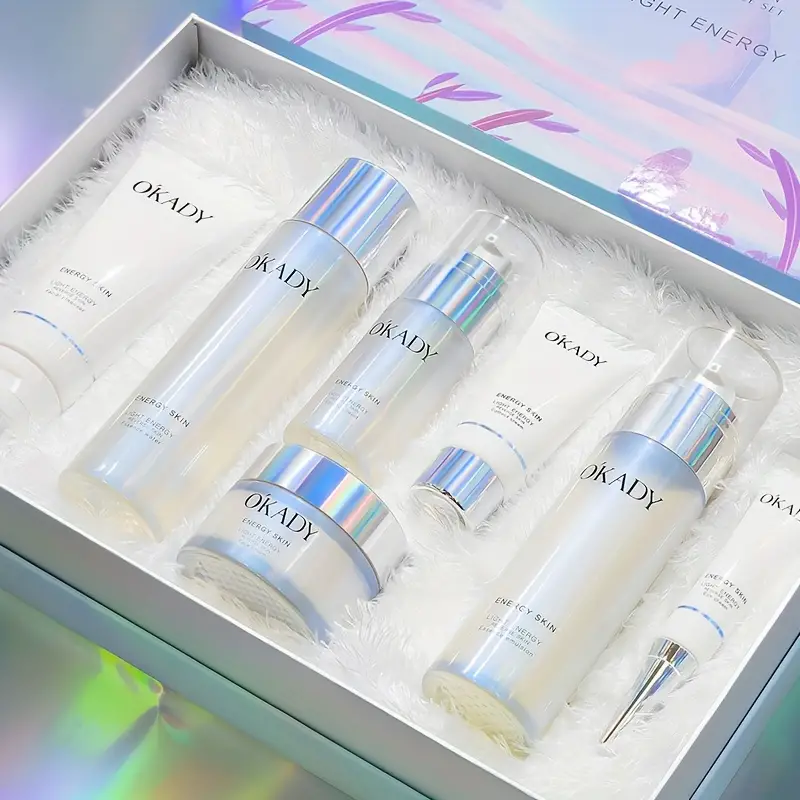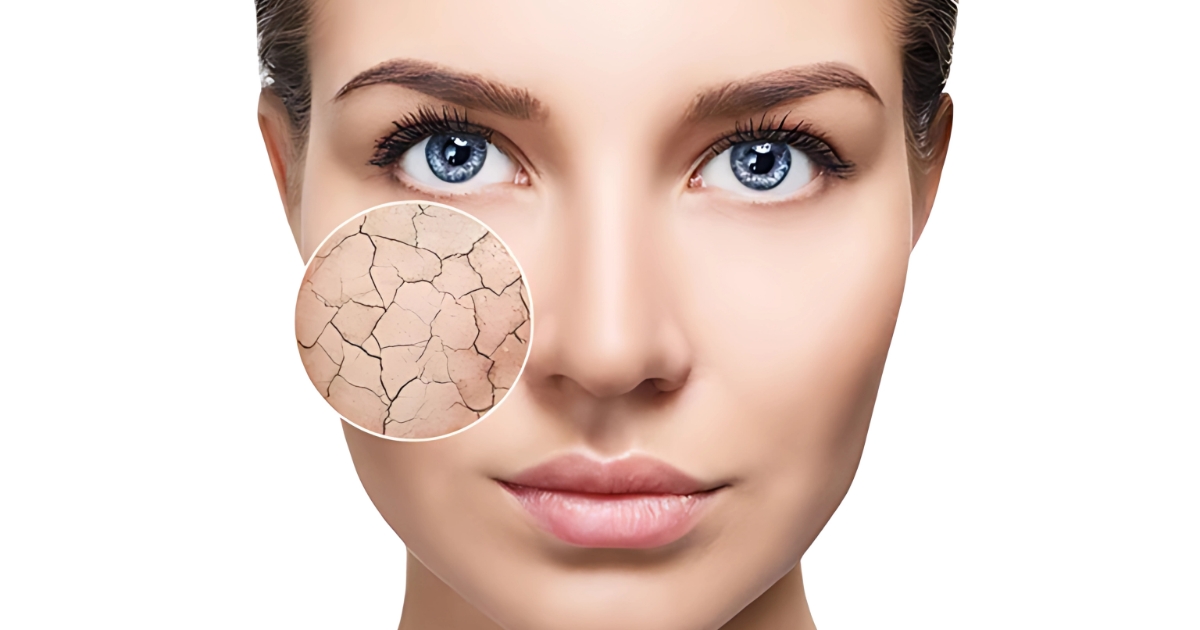
- Home
- Medical advice, Skin Types
skincare for sensitive skin
skincare for sensitive skin
In today’s world, more and more people face the challenges of sensitive skin. It can be a sudden issue, a long-term problem, or a constant battle. This article aims to help you understand the causes, symptoms, and solutions for hypersensitive skin.
This guide will explore what makes your skin sensitive. We’ll look at environmental factors and the importance of your skincare routine. By learning about your skin’s needs, you can make better choices and create a routine that cares for your skin.
Main Points
- Sensitive skin is a common condition affecting many individuals, with various underlying causes and triggers.
- Recognizing the signs and symptoms of skin sensitivity is the first step towards managing and improving your skin’s health.
- Environmental factors, such as weather, climate, and pollution, can significantly impact the sensitivity of your skin.
- Your skincare routine plays a crucial role in maintaining a balanced and resilient complexion.
- Implementing lifestyle changes can help reduce skin sensitivity and promote a healthier, more radiant appearance.
Understanding the Signs of Hypersensitive Skin
Do you often feel like your skin is irritated, flushed, or easily upset? If yes, you might have hypersensitive skin. Knowing the common symptoms and what triggers them can help you manage this condition better.
Common Symptoms and Triggers
Sensitive skin shows signs like redness, itching, stinging, or burning. Products, the environment, and lifestyle habits can trigger these issues. Finding out what specifically bothers your skin is important for healthier, more comfortable skin.
How to Identify Skin Sensitivity Patterns
Watch how your skin reacts to different situations and products. Keeping a journal of when symptoms occur and what might have caused them is helpful. This way, you can spot patterns and understand your sensitivity better.
Different Types of Skin Reactions
Sensitive skin can react in various ways, from quick irritation to ongoing inflammation. Some might see short-term redness or stinging, while others face long-term dryness, peeling, or breakouts. Knowing how your skin reacts is key to finding the right solutions.
Types of Skin Reactions:
- Acute Irritation: Symptoms include redness, stinging, and burning. Common triggers include certain skincare products, fragrances, and harsh cleansers.
- Chronic Inflammation: Symptoms include persistent dryness, peeling, and rashes. Triggers include environmental factors, stress, diet, and hormonal imbalances.
- Reactive Breakouts: Symptoms include acne, redness, and sensitivity. Triggers include comedogenic products, fluctuating hormones, and stress.
Common Causes Behind Skin Sensitivity
If you’re wondering why your skin is so sensitive, understanding the causes is key. Several factors can make your skin more reactive, including genetics, hormonal changes, medical conditions, and a damaged skin barrier.
- Genetics: Some individuals are born with a more reactive skin type, making them more prone to irritation and inflammation.
- Hormonal Changes: Hormonal fluctuations, such as those experienced during puberty, menopause, or pregnancy, can trigger skin sensitivity.
- Medical Conditions: Certain conditions, like eczema, rosacea, and autoimmune disorders, can weaken the skin’s protective barrier and increase sensitivity.
- Compromised Skin Barrier: When the skin’s natural protective layer is disrupted, it becomes more vulnerable to environmental stressors, leading to increased sensitivity and inflammation.
Environmental Factors Affecting Your Skin’s Sensitivity
External factors like weather and indoor air quality can greatly impact skin sensitivity. Understanding how these factors affect your skin helps you maintain a healthier complexion.
Weather and Climate Impact
Extreme weather can make sensitive skin react more. Chilly winds and low humidity can deplete your skin’s moisture, leading to a feeling of tightness and irritation. Conversely, hot and humid weather increases oil production, which can clog pores and worsen sensitivity.
Indoor Environmental Triggers
Indoor air quality, including dust, pet dander, smoke, and certain cleaning products, can irritate the skin. Low humidity can also weaken the skin barrier, making it more vulnerable.
Pollution and Urban Living Effects
Urban pollution, like car emissions and industrial waste, can clog pores and accelerate skin aging, leading to breakouts and irritation. UV radiation in urban areas further damages sensitive skin, increasing the risk of irritation.
Environmental Factors and Their Impacts:
- Weather and Climate: Extreme temperatures, dry air, and humidity can disrupt the skin barrier and lead to irritation.
- Suggested Solutions: Use a gentle, moisturizing skincare routine, consider a humidifier, and protect skin from harsh weather conditions.
- Indoor Environment: Pollutants, low humidity, and certain household products can trigger sensitivity and inflammation.
- Suggested Solutions: Invest in air purifiers, use gentle, fragrance-free cleaning supplies, and maintain optimal humidity levels.
- Urban Pollution: High concentrations of particulate matter and UV radiation can clog pores, cause breakouts, and accelerate skin aging.
- Suggested Solutions: Incorporate antioxidants into your skincare routine, wear broad-spectrum sun protection, and cleanse skin thoroughly.
The Role of Your Skincare Routine in Sensitivity
Your skincare routine plays a crucial role in managing sensitive skin. The products you use and how you care for your skin can either help soothe or aggravate it.
Choosing the Right Products
Selecting products suitable for sensitive skin is essential. Avoid harsh cleansers, exfoliants, and fragrances, as they can irritate your skin. Instead, choose gentle, non-irritating cleansers that preserve your skin’s natural oils. Also, consider using a serum formulated for sensitive skin for extra nourishment and hydration.
Keeping Your Routine Simple
A simple skincare routine benefits sensitive skin by minimizing potential irritants. Stick to the basics: a gentle cleanser, a moisturizing cream or lotion, and broad-spectrum sunscreen.
Recommended Product Categories and Ingredients to Avoid:
- Cleanser: Choose fragrance-free, non-foaming, and pH-balanced products.
- Avoid: Sulfates, alcohol, exfoliating beads.
- Moisturizer: Use hypoallergenic, ceramide-rich, and fragrance-free options.
- Avoid: Retinoids, alpha-hydroxy acids, essential oils.
- Serum: Opt for calming, hydrating serums with soothing ingredients.
- Avoid: Alcohol, fragrance, harsh active ingredients.
Essential Sensitive Skin Skincare Guidelines
Caring for sensitive skin requires careful selection of products and a gentle approach. Here are key tips to help maintain a soothing skincare routine.
- Building a Gentle Cleansing Routine: Use gentle cleansers that are soap-free and fragrance-free. For example, Arm & Hammer’s Sensitive Skin Fragrance-Free Bar Soap is effective and gentle. Rinse with lukewarm water.
- Moisturizing Techniques for Reactive Skin: Hydration is essential for sensitive skin. Use a fragrance-free moisturizer that won’t clog pores. Arm & Hammer’s Sensitive Skin Fragrance-Free Moisturizer is recommended. Apply gently, avoiding harsh rubbing.
- Sun Protection Strategies: Sun protection is crucial for sensitive skin. Use a broad-spectrum, mineral-based sunscreen with SPF 30 or higher, like Arm & Hammer’s Sensitive Skin Mineral Sunscreen. Reapply every two hours, especially when outdoors.
By following these guidelines, you can develop a skincare routine that soothes sensitive skin and promotes a healthy, glowing complexion.
Lifestyle Changes to Reduce Skin Sensitivity
A healthy lifestyle significantly contributes to resilient skin. Positive changes in diet, stress management, and sleep routines can help reduce skin sensitivity.
- Diet: Eat a balanced diet rich in antioxidants, healthy fats, and anti-inflammatory foods. Incorporate omega-3 fatty acids from sources like salmon, walnuts, and flaxseeds to calm inflammation and strengthen your skin. Avoid processed foods, sugary items, and harsh spices that can irritate sensitive skin.
- Stress Management: Stress often triggers skin sensitivity and breakouts. Practice relaxation techniques like meditation, deep breathing, or gentle yoga.
- Sleep: Quality sleep is vital for skin health. Aim for 7-9 hours of sleep nightly, maintaining a consistent sleep schedule to support sensitive skin.
FAQ:
What are the common signs and symptoms of sensitive skin?
Sensitive skin symptoms include redness, itching, burning, stinging, tightness, and heightened reactions to products or environmental factors.
What are some common triggers for sensitive skin?
Triggers include harsh skincare ingredients, environmental changes, indoor pollutants, and certain lifestyle habits.
What are the different types of skin reactions associated with sensitivity?
Skin reactions include irritation, inflammation, and allergic responses. Reactions may appear immediately or days later.
How can I identify my unique skin sensitivity patterns?
Track when your skin reacts and note potential triggers. Keeping a skincare journal can help identify patterns.
What are some common causes of hypersensitive skin?
Causes include genetics, hormonal changes, medical conditions, and a weakened skin barrier.
How do weather and climate impact sensitive skin?
Extreme weather can damage the skin barrier, leading to irritation and inflammation. Indoor conditions with low humidity or pollutants can also cause sensitivity.
What role does my skincare routine play in managing sensitive skin?
A gentle, fragrance-free, minimalist skincare routine can soothe and protect sensitive skin.
What are some essential guidelines for caring for sensitive skin?
Use a gentle cleansing routine, moisturize properly, and protect from sun exposure.
How can lifestyle changes help reduce skin sensitivity?
Healthy habits like a balanced diet, stress management, and quality sleep support skin health and reduce sensitivity.
Skin care products
Here are the best skincare products for sensitive skin, offering deep hydration and lasting softness. Formulated with natural oils and hyaluronic acid, they nourish and protect your skin, leaving it soft, radiant, and healthy.








